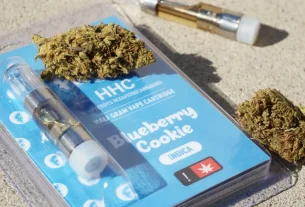Estimated Reading Time: 9 minutes
Estimated Reading Time: 9 minutes
TTe world of wellness is brimming with options, and if you’re exploring natural solutions for your well-being, chances are you’ve stumbled upon the buzz surrounding CBD oil.
But with so many brands and products vying for your attention, where do you even begin? I get it – the sheer volume of choices can be overwhelming.
That’s why, in this article, we’re diving deep into comparing CBD oils from top brands, helping you navigate the market and find the perfect fit for your needs.
I remember when I first started researching CBD. It felt like learning a whole new language!
There were so many terms, different extraction methods, and varying concentrations.
I spent weeks poring over reviews, comparing lab reports, and trying to understand what made one oil better than another.
This journey, and all my subsequent experiences, have culminated in this piece; a practical guide designed to simplify your decision-making process.
Let’s be honest, the quality of CBD oil can vary dramatically.
Comparing CBD oils from top brands helps you: avoid falling for marketing hype; understand the actual potency; and ensure you’re getting a product that aligns with your values.
It’s about empowering yourself with knowledge so you can make an informed choice.
What works wonders for one person might not be the right fit for another, so having a clear understanding of the options is crucial.
This journey of comparison is about finding the best possible solution, specifically tailored for you.
Several key aspects warrant careful consideration when comparing CBD oils from top brands.
I’ve broken them down into easily digestible categories. Consider them your shopping checklist!
Where the hemp is grown matters significantly.
Look for brands that source their hemp from reputable farms, preferably within the United States, Canada, or Europe, which often have stricter regulations regarding cultivation.
The extraction method is also crucial.
CO2 extraction is generally considered the gold standard because it’s solvent-free and produces a pure, potent product.
Also, consider the hemp’s certification from a trusted third party, which ensures that it’s grown ethically and sustainably.
Look for certifications like those offered by the U.S. Hemp Authority, and make sure to check their corresponding lab reports.
This is a big one!
Full-spectrum CBD oil contains all the cannabinoids found in the hemp plant, including trace amounts of THC (less than 0.3% in most cases).
This is often favored due to the “entourage effect,” where the combined effects of various cannabinoids and terpenes create a synergistic effect.
Broad-spectrum CBD oil contains multiple cannabinoids but is THC-free, making it a suitable option for those avoiding THC altogether.
CBD isolate is, as the name implies, pure CBD, without any other cannabinoids or terpenes. The choice depends on your personal preferences and needs.
While you are evaluating, keep an eye out for any potential side effects and take it slow.
CBD oil potency is measured in milligrams (mg) per bottle.
Start with a low dose (e.g., 10-20mg) and gradually increase until you find the right amount for you.
Some brands clearly label the mg of CBD per serving, which makes calculating your dosage much easier.
Pay close attention to the serving size recommendations on the label.
Don’t assume that more is always better; it’s all about finding the sweet spot that works for your body. Also, consider the bioavailability.
Some oils are formulated for faster absorption, which might be beneficial if you’re looking for rapid effects.
This is non-negotiable!
Reputable brands have their products tested by third-party labs to verify the cannabinoid profile and ensure the absence of contaminants like pesticides and heavy metals.
These lab reports (Certificates of Analysis, or COAs) should be readily available on the brand’s website or upon request. Scrutinize them!
Ensure that the listed CBD content matches what’s on the label, and check for any unwanted substances.
Read the label carefully.
A high-quality CBD oil should have minimal ingredients – ideally, just CBD extract and a carrier oil (e.g., MCT oil, hemp seed oil, or olive oil).
Avoid products with excessive additives, artificial flavors, or preservatives. Some brands add terpenes to enhance the effects and flavor.
Some are also adding new and exciting compounds, like CBG and CBN, to their formulas. Research what all ingredients are before settling on a product.
While brand recommendations can change, here’s a glimpse into some of the brands I have found worth noting, based on their overall reputation, product quality, and transparency.
This is in no way an exhaustive list, and I encourage you to do your own research, too.
This brand is often praised for its focus on transparency and sustainable farming practices.
They generally provide detailed lab reports and a wide range of product options, including full-spectrum and broad-spectrum oils.
They tend to utilize CO2 extraction. However, they are often on the pricier side, which means that they could be hard to get on a long-term basis.
This brand is known for its affordability without sacrificing quality.
They offer a solid selection of oils and are often praised for their customer service.
They generally offer both full-spectrum and isolate options, giving users a bit more control over what they are putting in their bodies.
Their products are often quite potent, so beginners should be careful and make sure to adhere to the recommended dosage.
This brand excels at providing specific products for targeted ailments.
Their products cater to different needs, for sleep, focus, and even skin problems.
They consistently deliver high-quality products and are extremely popular. This may be the best option if you are looking for a more specific product.
I’ve personally tried several brands over the years. The most significant thing I’ve learned is that it’s not always about the most expensive brand.
I’ve found incredible relief from products at different price points, and it’s really about finding what aligns best with your individual needs and budget.
What works wonders for one person might not be the right fit for another, so the journey is a personal one. And don’t be afraid to experiment!
One time, I was struggling with persistent tension headaches.
I tried several brands, but ultimately, it was a combination of a specific broad-spectrum oil (Brand Y, in fact!) and some targeted relaxation techniques that finally brought relief.
The key was being patient and observing how my body reacted. Also, do not be afraid to consult with your medical professionals.
Here is a tip: Start with the lowest recommended dosage and keep a journal. Note the time, your dosage, and how you feel.
This will help you identify the optimal dose for your particular needs.
Comparing CBD oils from top brands requires a bit of homework, but the effort is worthwhile.
By focusing on the factors we’ve discussed – sourcing, extraction, cannabinoid profiles, potency, lab reports, and ingredients – you can confidently navigate the market and choose a product that supports your well-being.
Remember, it’s a journey of exploration and self-discovery, so be patient and listen to your body.
The right CBD oil is out there, waiting for you to find it!
In 2023, a study published in the Journal of the American Medical Association found that approximately 60% of CBD products tested didn’t contain the amount of CBD stated on their labels.
This highlights the critical importance of third-party testing and choosing reputable brands.
When comparing CBD oils from top brands, remember that finding the perfect CBD oil is not always an immediate process; it often requires some experimentation and personalized attention.
Start slow, stay informed, and always prioritize your well-being.
Don’t be afraid to explore different brands and potencies until you find what works best for you.
After all, the ultimate goal is to find a CBD oil that helps you thrive. And remember, your journey to wellness is unique!
Also, ensure you’re familiar with the legal aspects of using CBD in your region. Ready to learn more about healthy habits? Join our newsletter for weekly health tips!
Frequently Asked Questions
What is the’entourage effect’and why is it important?
The’entourage effect’refers to the synergistic interaction of various cannabinoids, terpenes, and other compounds found in the cannabis plant. It suggests that these compounds work together to produce a more significant effect than any single compound alone. In the context of CBD oil, the entourage effect often leads to greater therapeutic benefits when using full-spectrum or broad-spectrum oils compared to CBD isolates, as it leverages the combined effects of all the plant’s natural components.
How do I determine the correct CBD oil dosage?
The ideal CBD oil dosage varies greatly from person to person, depending on factors like body weight, metabolism, and the specific condition being addressed. Start with a low dose, such as 10-20mg of CBD, and carefully observe how your body reacts. Gradually increase the dosage over several days or weeks, making incremental adjustments, until you achieve the desired effects. Always consult the product label for serving size recommendations and consult with a healthcare professional for personalized guidance.
Are there any potential side effects of using CBD oil?
While CBD oil is generally considered safe, some individuals may experience mild side effects. These can include dry mouth, drowsiness, changes in appetite, diarrhea, and fatigue. These effects are usually temporary and often subside as the body adjusts to the CBD. It’s always recommended to start with a low dose and monitor your body’s response. If any side effects are persistent or bothersome, discontinue use and consult a healthcare professional. Additionally, CBD can interact with certain medications, so it is always best to check with your medical doctor before starting a CBD routine.
What is the difference between full-spectrum, broad-spectrum, and isolate CBD oil?
Full-spectrum CBD oil contains all the cannabinoids naturally found in the hemp plant, including trace amounts of THC (typically less than 0.3%). Broad-spectrum CBD oil also contains multiple cannabinoids but undergoes a process to remove the THC, making it THC-free. CBD isolate is pure CBD, with no other cannabinoids or terpenes. The choice depends on your preferences and needs: full-spectrum maximizes the entourage effect, broad-spectrum offers benefits without THC, and isolate provides a pure CBD experience.
Where can I find reliable third-party lab reports for CBD products?
Reputable CBD brands provide Certificates of Analysis (COAs) from independent third-party labs to verify the purity and potency of their products. You can usually find these reports on the brand’s website, often in the product description section or within a dedicated “Lab Reports” or “Testing” section. If the reports aren’t readily available online, contact the brand directly and request them. The COAs will detail the cannabinoid profile and confirm the absence of contaminants like pesticides, heavy metals, and solvents.




